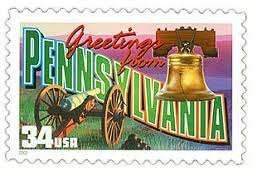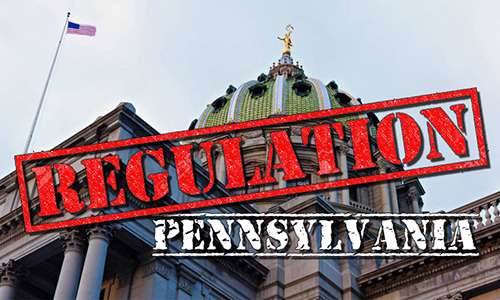Pennsylvania Online-Poker Debate Grows as Competing Bills Introduced
Online poker might well be on the path to legalization in Pennsylvania in 2017, but the legislative road is always complex. Case in point: Monday’s introduction, in the Pennsylvania State Senate, of another pro-online poker/gambling bill in the state. PA State Senator Jay Costa has introduced Senate Bill 524 (SB 524), an alternative measure to the twinned SB 477 / HB 392 legalization measure already under debate in Scranton.
Costa had already announced the pending introduction of the bill in a January legislative memorandum, but waited until this week to drop the 207-page bill. SB 524 is based upon the HB 1887 and PN 4145 bills that were introduced but failed to pass in 2016. Already onboard SB 524 as co-sponsors are state Sens. Wayne Fontana, Vincent Hughes, and Judy Schwank.
 Both bills also have to compete against an anti-online bill introduced by PA State Rep. Thomas Murt earlier this month. Murt’s House Resolution 801 (HR 801) would bar the state’s Gaming Control Board from putting forth “any rules and regulations allowing any form of internet gambling.” Murt’s bill also has four co-sponsors, but is generally regarded as little more than a distraction, despite the fact that he and those co-sponsors (Matthew E. Baker, Bob Kauffman, Craig T. Staats, Will Tallman) can safely be categorized as “nay” votes on the bills that do have a chance of passing.
Both bills also have to compete against an anti-online bill introduced by PA State Rep. Thomas Murt earlier this month. Murt’s House Resolution 801 (HR 801) would bar the state’s Gaming Control Board from putting forth “any rules and regulations allowing any form of internet gambling.” Murt’s bill also has four co-sponsors, but is generally regarded as little more than a distraction, despite the fact that he and those co-sponsors (Matthew E. Baker, Bob Kauffman, Craig T. Staats, Will Tallman) can safely be categorized as “nay” votes on the bills that do have a chance of passing.
Back to the latest bill, Costa’s SB 524. As for the largest differences between it and the rival SB 477 / HB 392 package, there are, essentially, just two. Costa’s SB 524 bill would charge significantly higher tax rates and licensing fees across the board, and it would also legalize online-lottery sales, that being a topic presently omitted from the SB 477 / HB 392 offering.
The difference in tax rates is quite striking, though, to the point where the topic of a possible “poison pill” has to be considered regarding Costa’s measure. His measure calls for a tax rate of 25% applied to all forms of online gambling to be authorized under the bill, a rate generally considered excessive to the point of curtailing market participation. The SB 477 / HB 392 rate is a much lower 14%.
The higher participation fees don’t end there. Costa’s bill calls for a $10 million license fee on operators compared to the other bill’s $8 million, and also calls for a $5 million license fee on supporting service providers, as opposed to the other bill’s $2 million.
One wonders if the projections found in Costa’s January memorandum might turn out to be a little bit lofty, given the excessive fees. Here’s what the memo projected:
Internet Gaming License Fee –
$10 million 10 (of 12) $100 millionInternet Gaming Vendor Fee –
$5 million 5 (of 10) $25 million
Whether or not 10 of the 12 casinos licensed in Pennsylvania would be willing to invest in the online-gambling market is very much an open question, given the $10 million application fee and 25% tax rate Costa’s bill suggests. One can easily envision some of the state’s smaller casinos evaluating such a scenario and deciding the chances of making a profit are too slim. So, despite the fact that 10 of the state’s 12 casinos current support online-gambling legalization, that number conceivably could drop in the face of an expected, prohibitive tax.
Costa’s bill aligns well with the SB 477 / HB 392 measure in most other generalities. Both include authorization of daily fantasy sports, for instance, and both also call online-slots availability at the state’s airports.
Costa’s bill also calls for a reimposition of the controversial $10 million per land-based-casino local share provision, the earlier version of which was ruled unconstitutional in a court challenge. Costa’s solution is simply to reclassify the $10 million as a slot-machine license renewal fee of 20%, applied annually against the casinos’ $50 application fee to offer such devices for play in the state. However, since such an annual “renewal” fee was never part of the initial agreement, it may well open up the state to brand new legal challenges if enacted in that form.


















COMMENTS